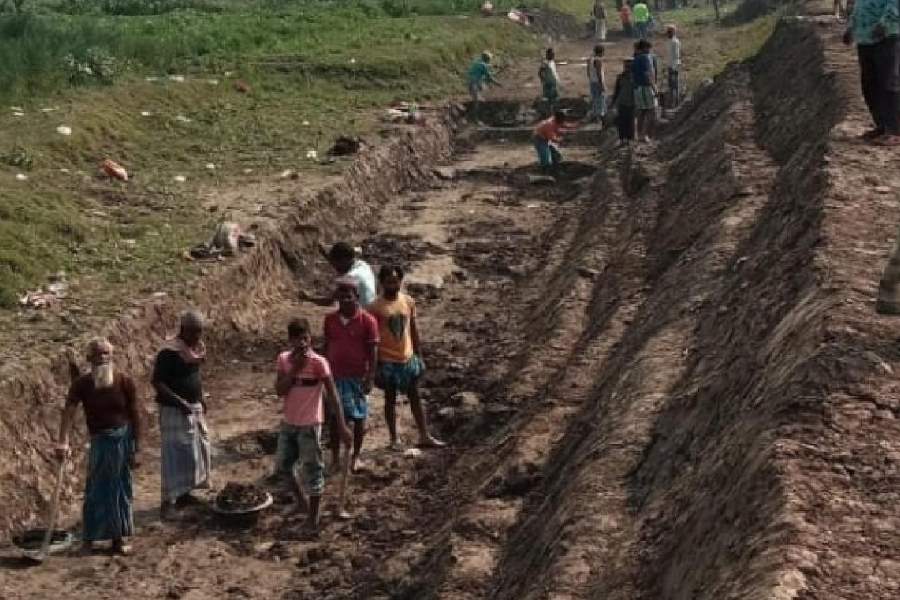Rural workers under the Mahatma Gandhi National Rural Employment Guarantee Act (MGNREGA) are facing denial of work, delayed wage payment, and non-registration of attendance because of a series of measures taken by the Union government, activists from 11 states alleged on Saturday.
At a news conference organised by NREGA Sangharsh Morcha (NSM), activists from 11 states, including Bengal, said the ministry of rural development (MoRD) has systematically undermined the job scheme, which seeks to provide up to 100 days of unskilled work to every rural household in a year.
It is a demand-driven scheme, which means the government is legally bound to provide the required funds according to the demand raised by the workers. However, this year, the finance ministry has put a cap on expenditure at 60 per cent of the allocated budget in the first six months.
This means the states have been debarred from spending more than ₹51,600 crore of the ₹86,000 crore allocated in the budget before the end of September. According to the website of the MGNREGA, the MoRD has released ₹52,951 crore as on September 6, 2025.
Shankar, who is associated with the Dalit Bahujan Front in Telangana, said the job card holders in Telangana are being denied work because of the finance ministry order capping expenditure at 60 per cent of the allocation by September.
He said the workers under the scheme have not received their wages since May this year in the state.
Rajendran Narayanan, an associate professor at Azim Premji University and a researcher on the MGNREGA, said the scheme is facing a dearth of funds and the order, capping expenses, is aimed at reducing the expenditure.
“The capping on expenditure is a disastrous step. Sixty per cent of the allocated funds have already been exhausted so far. So the demand for work will not be accepted and there will be no work under the MGNREGA this month,” Narayanan said.
He said the World Bank had suggested the Indian government should spend 1.6 per cent of the GDP on the MGNREGA to run the programme smoothly, while the spending stands at 0.3 per cent of the GDP now.
Another controversial measure by the MoRD is the online attendance registration under the National Mobile Monitoring System (NMMS). Rambeti, a female worker from Sitapur district in Uttar Pradesh, said that the works being carried out under the MGNREGA are geo-tagged under the NMMS.
The workers have to gather at the spot from where the work starts to mark their attendance online twice a day. If a road project stretches three kilometres, the workers have to come to the starting point of the project twice a day to be photographed, which is to be uploaded on the NMMS app.
“Coming to the starting point of the work in case of construction of a road or renovation of a canal is a hurdle for us,” she said.
Anuradha Talwar from Paschim Banga Khet Mazdoor Samity alleged that neither the Bengal government nor the MoRD are serious about resuming the stalled MGNREGA work in Bengal despite a direction from Calcutta High Court to start work from August 1.
The MoRD has challenged the direction in the Supreme Court that will hear the issue next week.
Before the MoRD moved the apex court, the Bengal government should have placed the labour budget projection before the MoRD. However, it did not take any step to restart the scheme that had been discontinued by the MoRD, citing alleged irregularities.
The activists demanded that the daily wage should be increased to a minimum of ₹800 a day for MGNREGA workers from less than ₹400 a day. They demanded timely wage payment and immediate resumption of work in Bengal.











